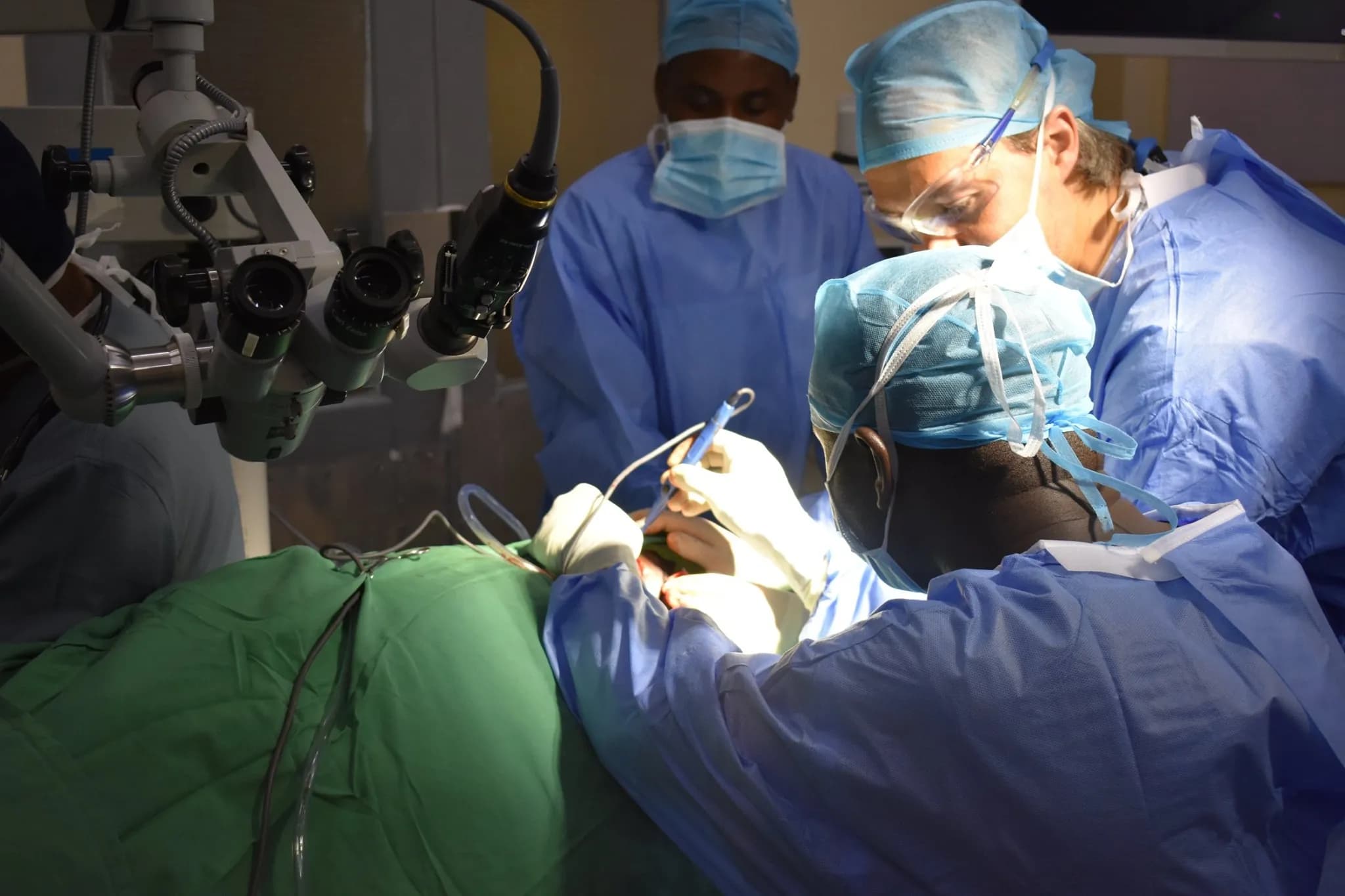We're loading the full news article for you. This includes the article content, images, author information, and related articles.
Health Cabinet Secretary Aden Duale has commended the medical team at Kenya National Hospital (KNH) and University of Nairobi (UoN) for successfully performing a complex, nine-hour facial reconstruction surgery on seven-year-old Ian Baraka, who was severely injured

Nairobi, Kenya — September 27, 2025 (EAT).
Health Cabinet Secretary Aden Duale has commended the medical team at Kenya National Hospital (KNH) and University of Nairobi (UoN) for successfully performing a complex, nine-hour facial reconstruction surgery on seven-year-old Ian Baraka, who was severely injured in a 2023 bandit attack.
The surgery, described as historic and highly complex, involved reconstructing multiple facial structures, restoring function and appearance.
Ian Baraka, from a region afflicted by banditry, had sustained injuries to his face, including fractures and soft tissue damage, during the 2023 incident.
CS Duale visited Ian at KNH post-surgery, lauding the neurosurgeons, maxillofacial surgeons, anesthetists, nursing staff, and support teams for their coordination and skill.
He emphasized that the reconstruction is not just a medical victory but a symbol of hope for victims of violence who often bear visible and invisible scars.
Such complex reconstructive surgeries are rare in Kenya due to resource constraints, specialist availability, and surgical capacity.
The collaboration between KNH and UoN underscores the value of public referral hospitals in handling advanced tertiary cases.
This case highlights the intersection of security, health, and social justice—victims of violence sometimes struggle to access expensive reconstructive care.
CS Duale said: “This is one of the proudest days for our health system. We have shown that we can do world-class repair in our country, restoring dignity to victims of violence.”
The surgical team described the procedure as technically demanding, requiring advanced imaging, microvascular techniques, customized implants, and postoperative monitoring.
Civil society groups hailed the success as evidence that investing in Kenya’s health infrastructure can reduce dependence on medical tourism and external support.
Postoperative care will be crucial: infection risk, wound integrity, functional rehabilitation (speech, chewing, facial movement).
Scaling capacity: not every hospital has resources to replicate such surgeries, particularly in remote or county-level facilities.
Cost & sustainability: the long-term support for such patients—physical therapy, follow-up, psychosocial care—must be budgeted.
Keep the conversation in one place—threads here stay linked to the story and in the forums.
Sign in to start a discussion
Start a conversation about this story and keep it linked here.
Other hot threads
E-sports and Gaming Community in Kenya
Active 9 months ago
The Role of Technology in Modern Agriculture (AgriTech)
Active 9 months ago
Popular Recreational Activities Across Counties
Active 9 months ago
Investing in Youth Sports Development Programs
Active 9 months ago
Key figures and persons of interest featured in this article